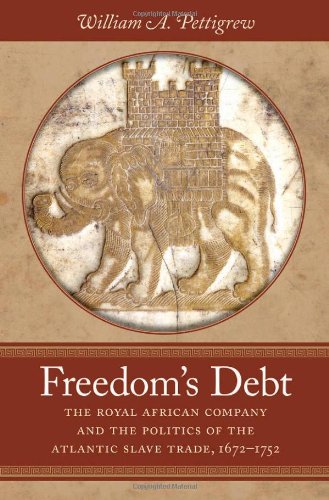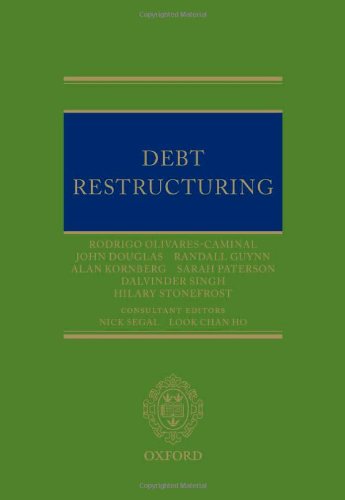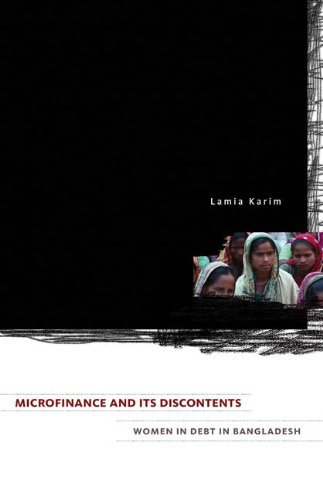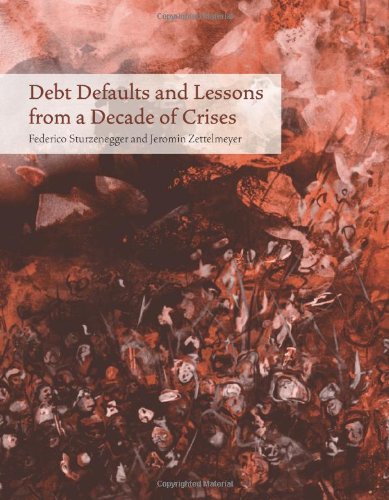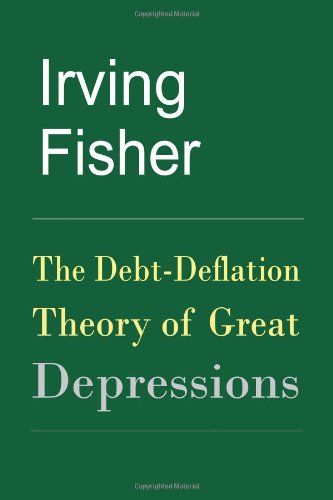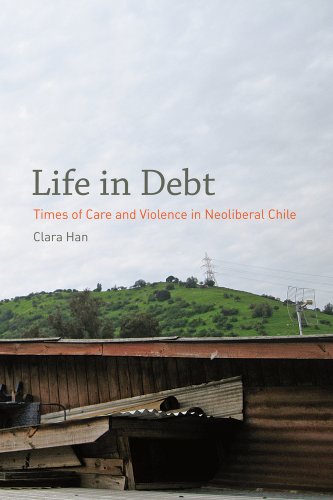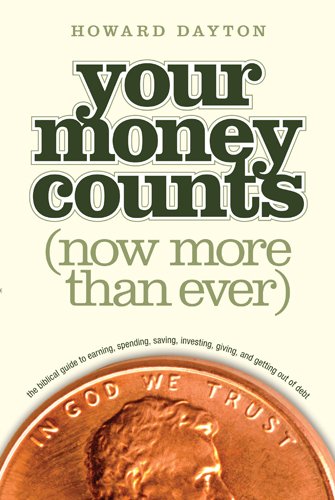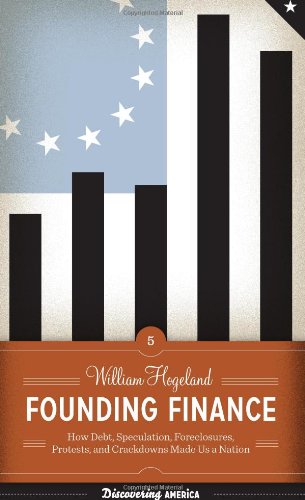In the years following the Glorious Revolution, independent slave traders challenged the charter of the Royal African Company by asserting their natural rights as Britons to trade freely in enslaved Africans. In this comprehensive history of the rise and fall of the RAC, William A. Pettigrew grounds the transatlantic slave trade in politics, not economic forces, analyzing the ideological arguments of the RAC and its opponents in Parliament and in public debate. Ultimately, Pettigrew powerfully reasons that freedom became the rallying cry for those who wished to participate in the slave trade and therefore bolstered the expansion of the largest intercontinental forced migration in history.
Unlike previous histories of the RAC, Pettigrew’s study pursues the Company’s story beyond the trade’s complete deregulation in 1712 to its demise in 1752. Opening the trade led to its escalation, which provided a reliable supply of enslaved Africans to the mainland American colonies, thus playing a critical part in entrenching African slavery as the colonies’ preferred solution to the American problem of labor supply.
Debt Restructuring provides a legal analysis of international corporate, banking and sovereign debt restructuring from both the creditors’ and debtors’ perspective. It provides a practical guide for creditors holding distressed debt, debtor options in a distressed scenario and the necessary steps for the parties to achieve their goals.
Written by an expert author team of leading practitioners and academics, the legal analysis is supported by case studies and draft clauses. This topical work is divided into three parts: corporate debt restructuring; bank resolution; and sovereign debt restructuring. Focusing primarily on English and US law, there is coverage of regulation at EU level and the UNCITRAL model law on cross-border insolvencies. Regulatory, policy and practice changes developed as a result of the credit crisis are incorporated to provide a current account of practice in this field.
Aimed at lawyers working in international finance, banking, insolvency or financial services regulation, as well as regulatory agencies, central banks, banking supervisors, accountants and investment banks, Debt Restructuring can be used as a tool for international practitioners to understand the current trends in debt restructuring in order to provide a solution to their clients.
In 2006 the Grameen Bank of Bangladesh won the Nobel Peace Prize for its innovative microfinancing operations. This path-breaking study of gender, grassroots globalization, and neoliberalism in Bangladesh looks critically at the Grameen Bank and three of the leading NGOs in the country. Amid euphoria over the benefits of microfinance, Lamia Karim offers a timely and sobering perspective on the practical, and possibly detrimental, realities for poor women inducted into microfinance operations.
In a series of ethnographic cases, Karim shows how NGOs use social codes of honor and shame to shape the conduct of women and to further an agenda of capitalist expansion. These unwritten policies subordinate poor women to multiple levels of debt that often lead to increased violence at the household and community levels, thereby weakening women’s ability to resist the onslaught of market forces.
A compelling critique of the relationship between powerful NGOs and the financially strapped women beholden to them for capital, this book cautions us to be vigilant about the social realities within which women and loans circulate—realities that often have adverse effects on the lives of the very women these operations are meant to help.
Product Features
- Used Book in Good Condition
Earn An Accredited College Degree Without Student Loans!
Not a day goes by that reports of the ever-increasing costs of higher education are making the news. In order to earn that coveted credential we have to take on a mountain of debt to pay for it, right? And in the society we now live in if you don’t have that coveted credential, it can be very difficult to get started in a good-paying career. What’s a person to do?
Good news…You don’t have to take on a mountain of debt to earn an accredited college degree. In fact, it’s even possible to earn a college degree for free if you know how the system works. And there are many ways to earn inexpensive college credits that colleges and universities don’t want you to know about. Why do they want this information kept secret? Simple…because they are raking in the cash from your tuition money and they don’t want the gravy train to stop.
Earn A Debt-Free College Degree! is a book that explodes the myth that earning a college degree requires a lot of money (and a big student loan that takes years to pay off). The book shows you how to earn an accredited bachelor’s degree for anywhere from free to no more than $15,000(and half this amount for associate’s degrees).
The best part about the strategies the book presents is that they do not rely on scholarships. That’s the major difference between this book and all the other books on the market that claim they can help you lower your tuition bills. Nearly all of those books talk about scholarships. These books make it sound like businesses and organizations have scholarship money just lying around and they are just looking for someone to give it to. It all sounds oh so easy, doesn’t it? There’s just one problem with this…thousands of other students have read those same books and they are all applying for the same scholarships you are. It takes many hours of work to search scholarship databases, fill out all those applications, and write essays. And then it becomes a waiting game to see if a scholarship committee picks you out of hundreds of applicants. You don’t have to worry about such an uncertain way to pay for college. There is a better way.
Earn A Debt-Free College Degree! presents simple strategies that nearly anyone can implement. You don’t have to be a stellar student with amazing grades, either. Your previous academic achievements won’t matter.
Here are just a few things you’ll discover in the book:
– Learn how to obtain textbooks for pennies on the dollar
– Discover more than a dozen colleges and universities in the U.S. that don’t charge tuition to any students who are accepted (and five of these don’t charge room and board, either)
– Find out how you can earn college credit that is accepted by nearly 1,900 college and universities in the United States by taking and passing one single multiple-choice exam. Most schools will accept up to 30 credit hours into a degree program from this type of credit. And it gets even better. It’s possible to earn 30 credit hours with this strategy for under $1,000.
– Discover how you can earn a four-year degree in only three years or even two years in some cases.
– Learn how you can turn previously completed training courses through your job, volunteer organization, and others into usable college credit. Most colleges and universities accept this type of credit but too few know about it.
– Discover the amazing educational benefits available for military personnel (either full-time, Guard, or reserves personnel). Learn how you can go from zero college credits all the way to a doctorate on the government’s tab.
– And many others.
We’ve become accustomed to the idea that earning a college degree is something that is very expensive. It’s time to destroy that myth. Let this book show you the way.
Product Features
- Used Book in Good Condition
The debt crises in emerging market countries over the past decade have given rise to renewed debate about crisis prevention and resolution. In Debt Defaults and Lessons from a Decade of Crises, Federico Sturzenegger and Jeromin Zettelmeyer examine the facts, the economic theory, and the policy implications of sovereign debt crises. They present detailed case histories of the default and debt crises in seven emerging market countries between 1998 and 2005: Russia, Ukraine, Pakistan, Ecuador, Argentina, Moldova, and Uruguay. These accounts are framed with a comprehensive overview of the history, economics, and legal issues involved and a discussion from both domestic and international perspectives of the policy lessons that can be derived from these experiences.Sturzenegger and Zettelmeyer examine how each crisis developed, what the subsequent restructuring encompassed, and how investors and the defaulting country fared. They discuss the new theoretical thinking on sovereign debt and the ultimate costs entailed, for both debtor countries and private creditors. The policy debate is considered first from the perspective of policymakers in emerging market countries and then in terms of international financial architecture. The authors’ surveys of legal and economic issues associated with debt crises, and of the crises themselves, are the most comprehensive to be found in the literature on sovereign debt and default, and their theoretical analysis is detailed and nuanced. The book will be a valuable resource for investors as well as for scholars and policymakers.
Upcycle Your Life
Get ready to trade in headaches and hassles for life skills, exchange clutter for money, transform eyesores into beautiful focal points in your home, and say goodbye to over-consumption and hello to genuine experiences.
Cristin Frank, the original Reduction Rebel, shows you the freedom and fulfillment you can have when you simplify your life. You’ll learn how to use your talents, time, and space to combat stress, become more efficient, relieve money woes, open up opportunities, and provide unbelievable self-fulfillment.
Inside you’ll find:Simple techniques that eliminate clutter and keep it from returningA personalized plan to help you reclaim your timePractical (and profitable) ways to sell unused items in your homeTips to eliminate debt and curb consumptionStep-by-step upcycling projects that transform old, unwanted furniture into beautiful, customized organizing systemsDozens of exercises that help you identify and honor your talents, values, and goals As Cristin says, “success is getting what we want.” Let this book show you how to let go of what’s holding you back so you can put your energy into your dreams and interests and build your success.
The credit crunch today is not destroying capital but recognising that capital was destroyed by misallocation in the years of irrational exuberance. If that is so, then we are entering a spiral of debt deflation that will play out slowly for years to come. To understand how that works, we turn to Professor Irving Fisher of Yale (1933).
Chile is widely known as the first experiment in neoliberalism in Latin America, carried out and made possible through state violence. Since the beginning of the transition in 1990, the state has pursued a national project of reconciliation construed as debts owed to the population. The state owed a ?social debt” to the poor accrued through inequalities generated by economic liberalization, while society owed a ?moral debt” to the victims of human rights violations. Life in Debt invites us into lives and world of a poor urban neighborhood in Santiago. Tracing relations and lives between 1999 and 2010, Clara Han explores how the moral and political subjects imagined and asserted by poverty and mental health policies and reparations for human rights violations are refracted through relational modes and their boundaries. Attending to intimate scenes and neighborhood life, Han reveals the force of relations in the making of selves in a world in which unstable work patterns, illness, and pervasive economic indebtedness are aspects of everyday life. Lucidly written, Life in Debt provides a unique meditation on both the past inhabiting actual life conditions but also on the difficulties of obligation and achievements of responsiveness.
Product Features
- Used Book in Good Condition
With the economy reeling in the wake of the recent recession, many people are experiencing such financial challenges as credit card debt, downsizing, dead-end jobs, and inadequate or depleted savings. With these challenges come others as well. Recent studies confirm that more than half of all divorces are the result of financial pressures at home. And spiritually, many people are struggling to maintain a biblical perspective amidst the constant tug of materialism. But there is hope. The Bible has a lot to say about money. In fact, the Bible is a veritable blueprint for managing your finances. In Your Money Counts, trusted financial expert Howard Dayton shows you how to manage your personal finances in a highly practical, biblically-based way.
Recent movements such as the Tea Party and anti-tax “constitutional conservatism” lay claim to the finance and taxation ideas of America’s founders, but how much do we really know about the dramatic clashes over finance and economics that marked the founding of America? Dissenting from both right-wing claims and certain liberal preconceptions, Founding Finance brings to life the violent conflicts over economics, class, and finance that played directly, and in many ways ironically, into the hardball politics of forming the nation and ratifying the Constitution—conflicts that still continue to affect our politics, legislation, and debate today.
Mixing lively narrative with fresh views of America’s founders, William Hogeland offers a new perspective on America’s economic infancy: foreclosure crises that make our current one look mild; investment bubbles in land and securities that drove rich men to high-risk borrowing and mad displays of ostentation before dropping them into debtors’ prisons; depressions longer and deeper than the great one of the twentieth century; crony mercantilism, war profiteering, and government corruption that undermine any nostalgia for a virtuous early republic; and predatory lending of scarce cash at exorbitant, unregulated rates, which forced people into bankruptcy, landlessness, and working in the factories and on the commercial farms of their creditors. This story exposes and corrects a perpetual historical denial—by movements across the political spectrum—of America’s all-important founding economic clashes, a denial that weakens and cheapens public discourse on American finance just when we need it most.
